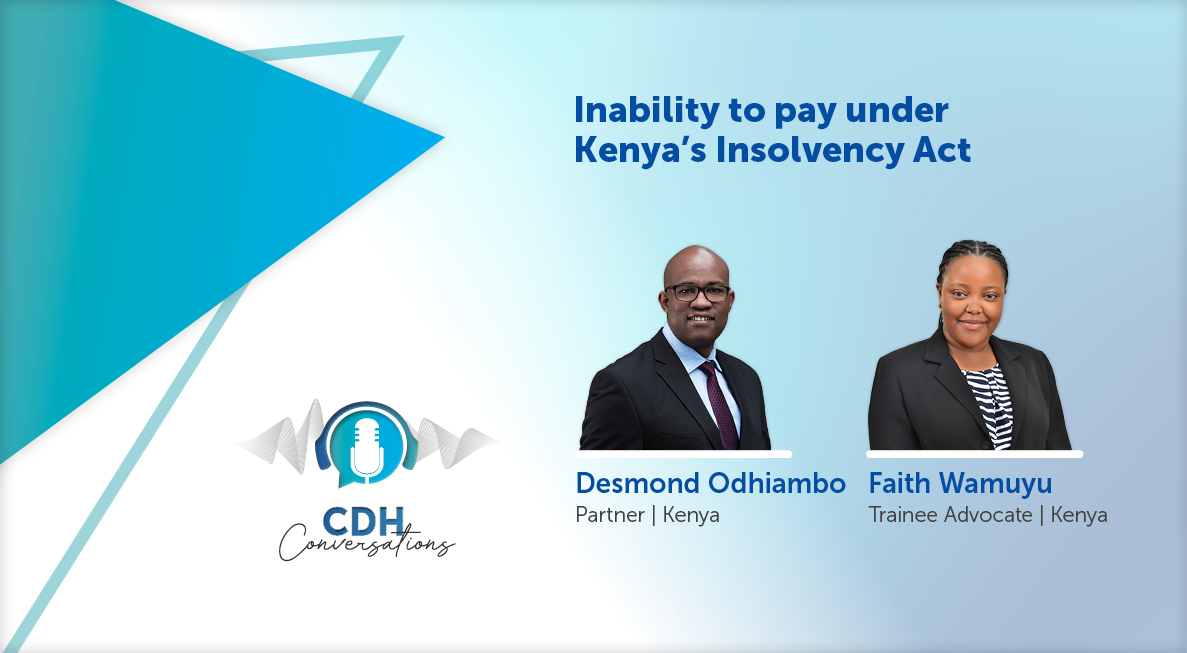A tender issue: personal liability for tender officials
On 19 November 2014, in the decisionMogale City Municipality v Fidelity Security Services (Pty) Ltd (572/2013) [2014] ZASCA 172, the Supreme Court of Appeal (SCA) held that a tender awarded by the Mogale City Municipality (Municipality) had been correctly set aside due to procedural irregularities. The SCA also warned that in the future, officials who failed to carry out their duties with appropriate diligence when awarding tenders may be held personally liable for their actions.
In issuing the warning, the SCA referred to the recent decision, Gauteng Gambling Board and Another v MEC for Economic Development, Gauteng 2013 (50 SA 24 (SCA) paragraph 54, in which the Court stated:
"It is time for courts to seriously consider holding officials who behave in the high-handed manner described above, personally liable for costs incurred. This might have a sobering effect on truant public office bearers."
During the initial proceedings in the court a quo, a series of irregularities in the tender process were exposed, including the following:
-
one of the bidders was erroneously disqualified during the tender process;
-
the successful tenderer had initially scored such a low mark in the functionality component of the bid that they should have been disqualified, however, their score was re-evaluated and a new qualifying score was allocated to them;
-
one of the bidders was involved in dubious activities which included giving gifts to officials of the Municipality involved in evaluating the tender; this bidder somehow remained in the running for the tender; and
-
one of the unsuccessful bidders launched a review application but withdrew the application after the successful bidder agreed to share the tender award. This agreement was seemingly endorsed by the Municipality despite there being no provision for this occurrence in the tender.
The SCA held that the exclusion of the disqualified bidder had been wrong and reviewable because the disqualified bidder's error was unintentional and unavoidable. Clarifying this point, the Court stated that "a bar on awarding a tender does not mean that a possible obstacle to the award of the tender cannot be removed before the decision on the tender is made". In this instance, the obstacle was removed after the submission of the tender but prior to the consideration of the tender.
With the advent of 'tenderpreneurs', and funds advanced to successful bidders frequently running into millions of rands, the equitability of the tender process is vitally important. Transparency is an essential ingredient in securing public and commercial faith in the legitimacy of tender proceedings.
The SCA's looming warning of potential personal liability being levied against tender officials who negligently carry out their functions, will hopefully create more accountable government tenders going forward.
The information and material published on this website is provided for general purposes only and does not constitute legal advice. We make every effort to ensure that the content is updated regularly and to offer the most current and accurate information. Please consult one of our lawyers on any specific legal problem or matter. We accept no responsibility for any loss or damage, whether direct or consequential, which may arise from reliance on the information contained in these pages. Please refer to our full terms and conditions. Copyright © 2026 Cliffe Dekker Hofmeyr. All rights reserved. For permission to reproduce an article or publication, please contact us cliffedekkerhofmeyr@cdhlegal.com.
Subscribe
We support our clients’ strategic and operational needs by offering innovative, integrated and high quality thought leadership. To stay up to date on the latest legal developments that may potentially impact your business, subscribe to our alerts, seminar and webinar invitations.
Subscribe




